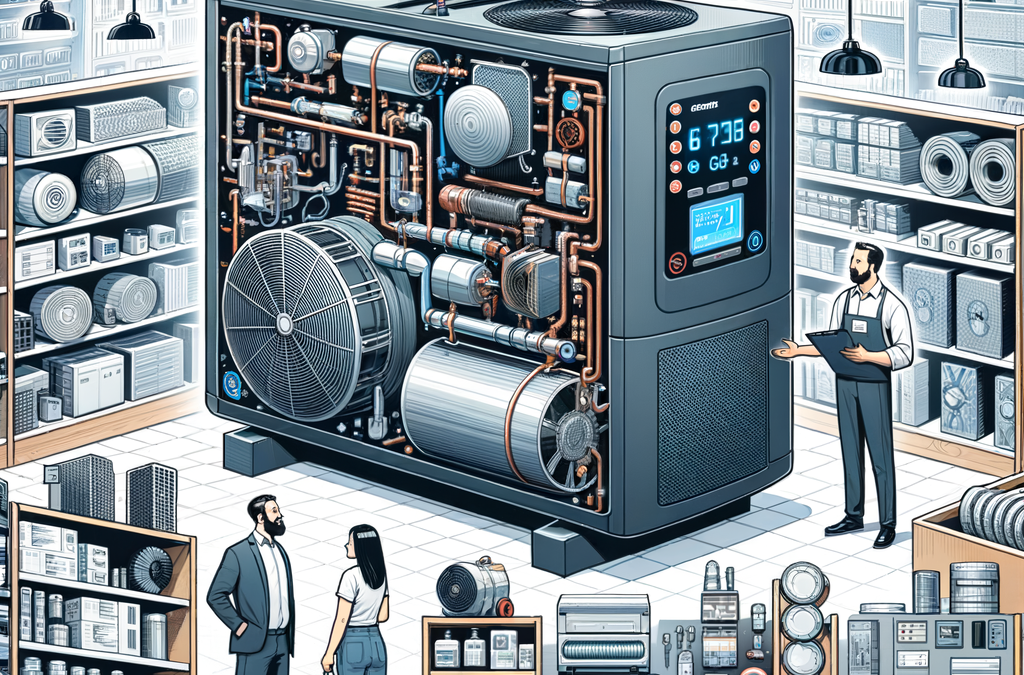Heat pump systems are versatile heating and cooling devices that can efficiently regulate indoor temperatures by transferring heat between indoor and outdoor environments. Unlike traditional heating systems that generate heat, heat pumps extract heat from the air, ground, or water, depending on the type of system.
Types of Heat Pump Systems
There are several types of heat pump systems available, including air-source, ground-source, and water-source heat pumps. Air-source heat pumps are the most common, utilizing the outdoor air as a heat source in winter and a heat sink in summer. Ground-source heat pumps, also known as geothermal heat pumps, extract heat from the ground through a series of underground pipes. Water-source heat pumps operate similarly to ground-source systems but extract heat from a water source, such as a lake or pond.
Advantages of Heat Pump Systems
One of the primary advantages of heat pump systems is their exceptional energy efficiency. By transferring heat rather than generating it, heat pumps can provide significant cost savings on energy bills compared to traditional heating and cooling systems. Additionally, heat pumps produce fewer greenhouse gas emissions, making them an environmentally friendly choice for homeowners concerned about their carbon footprint.
Factors to Consider Before Installing a Heat Pump
Before investing in a heat pump system, it’s essential to consider factors such as climate, available space, and initial cost versus long-term savings. While heat pumps are suitable for most climates, they may be less efficient in extreme cold temperatures. Additionally, homeowners should ensure they have adequate space for installation, whether it’s outdoor space for an air-source heat pump or land for ground-source systems.
Installation Process
The installation of a heat pump system typically involves assessing the site, choosing the right system for your home, and deciding whether to hire a professional installer or attempt a DIY installation. Professional installation ensures optimal performance and reliability, but homeowners with experience may choose to install the system themselves to save on installation costs.
Maintenance and Care
Proper maintenance is essential for maximizing the lifespan and efficiency of a heat pump system. This includes regular servicing by a qualified technician, cleaning or replacing filters as needed, and monitoring energy consumption to identify any potential issues.
Common Issues and Solutions
Like any HVAC system, heat pumps may experience occasional issues such as reduced heating or cooling efficiency, strange noises, or system freezing up. These issues can often be resolved through routine maintenance or professional repairs.
Financial Incentives and Rebates
In addition to energy savings, homeowners may be eligible for various financial incentives and rebates for installing a heat pump system. These incentives can include government tax credits, utility company rebates, and financing options to help offset the initial cost of installation.
Long-Term Benefits of Heat Pump Systems
Beyond immediate cost savings, heat pump systems offer long-term benefits such as increased property value, enhanced comfort, and a reduced carbon footprint. Homes equipped with heat pump systems are often more attractive to prospective buyers due to their energy efficiency and environmental sustainability.
Comparison with Traditional Heating and Cooling Systems
Compared to traditional heating and cooling systems such as furnaces and air conditioners, heat pumps offer superior efficiency and cost-effectiveness. While the initial investment may be higher, the long-term savings and environmental benefits make heat pumps a worthwhile investment for many homeowners.
Case Studies and Success Stories
Real-life examples of successful heat pump installations can provide valuable insights for homeowners considering this technology. Testimonials from satisfied homeowners highlight the comfort, energy savings, and environmental advantages of heat pump systems.
Tips for Maximizing Efficiency
To maximize the efficiency of a heat pump system, homeowners should ensure proper insulation, optimize thermostat settings, and utilize zoning options to customize heating and cooling for different areas of the home.
Future Trends and Innovations
As technology continues to advance, future trends in heat pump systems may include advancements in efficiency, integration with smart home systems, and innovative design features to further enhance performance and convenience.
Environmental Impact of Heat Pumps
Heat pumps play a significant role in reducing greenhouse gas emissions and advancing sustainability goals. By utilizing renewable energy sources and minimizing energy consumption, heat pump systems contribute to a cleaner and greener future.
Conclusion
In conclusion, the benefits of installing a heat pump system in your home are numerous and substantial. From energy savings and environmental sustainability to increased comfort and property value, heat pumps offer a compelling solution for modern homeowners seeking efficient and eco-friendly heating and cooling options. With proper installation, maintenance, and care, a heat pump system can provide reliable performance and long-term benefits for years to come.


